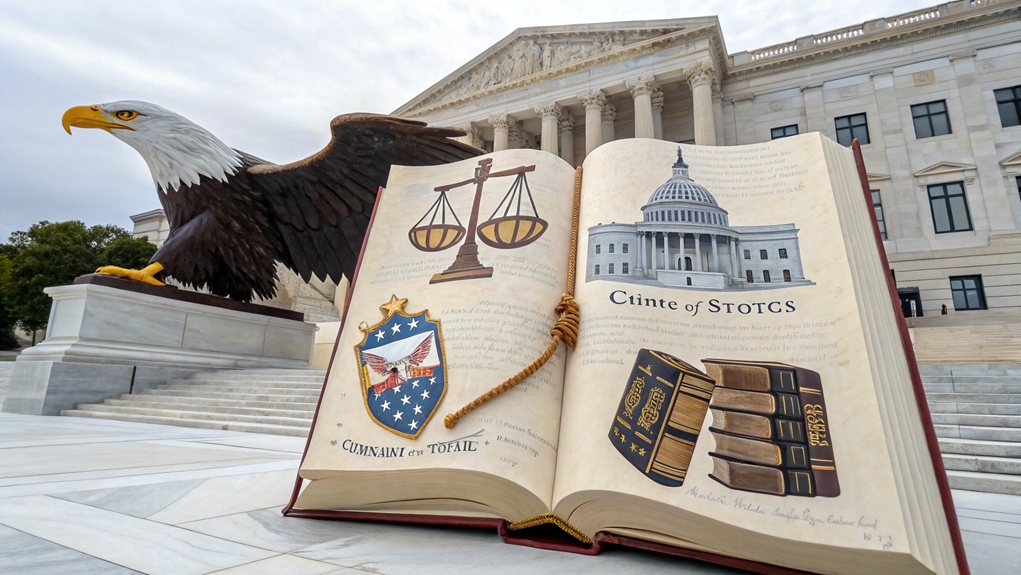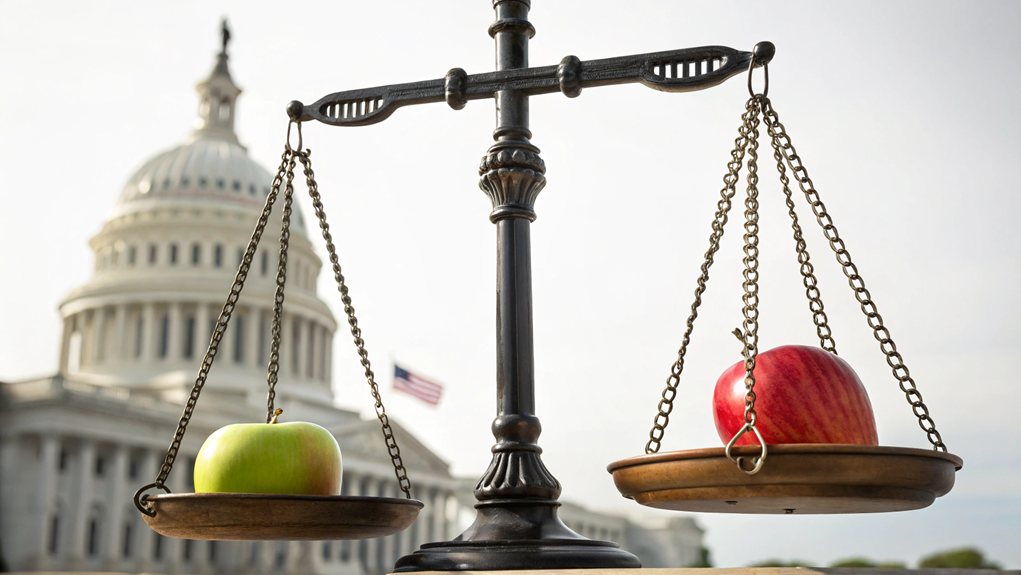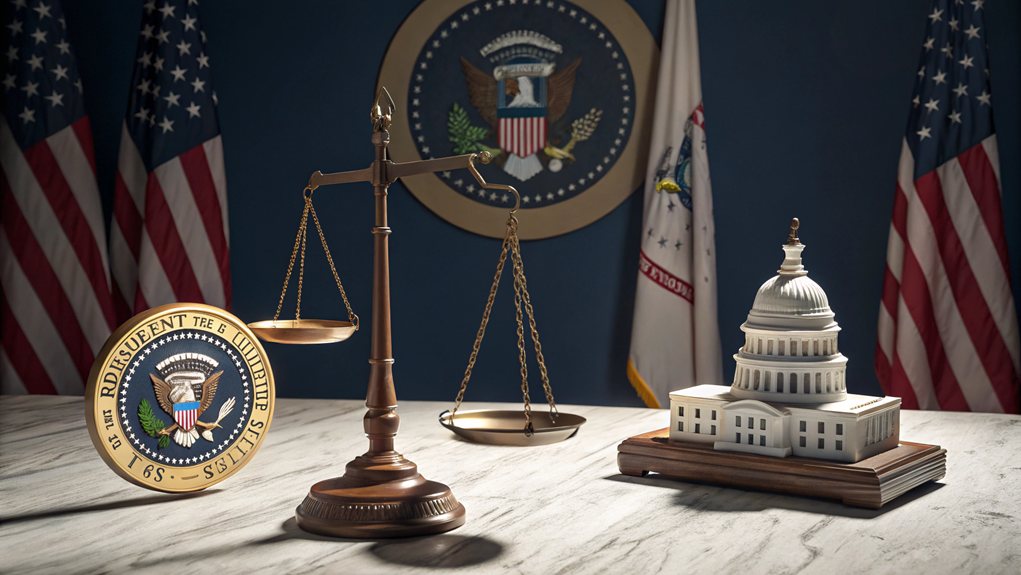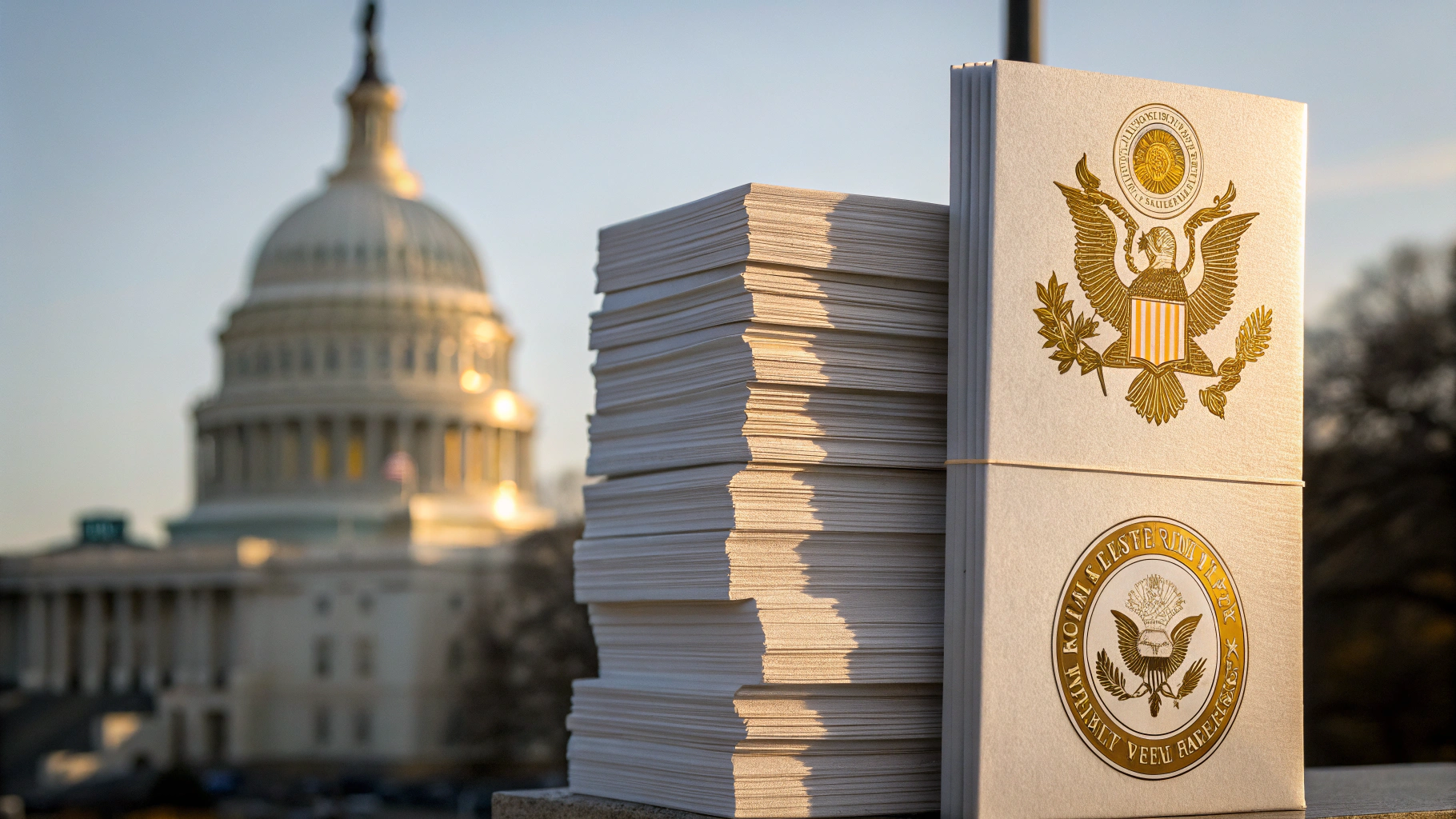The Constitution hands out powers like it's at a buffet. The federal government gets to tax, regulate interstate commerce, and manage military affairs—stuff like that. States, on the other hand, run education and healthcare, and handle local law enforcement. The Tenth Amendment is like a big "you can't take that" sign for federal overreach. Sure, they share some responsibilities, but good luck sorting it out. Want to know how this all plays out in real life? Stick around.
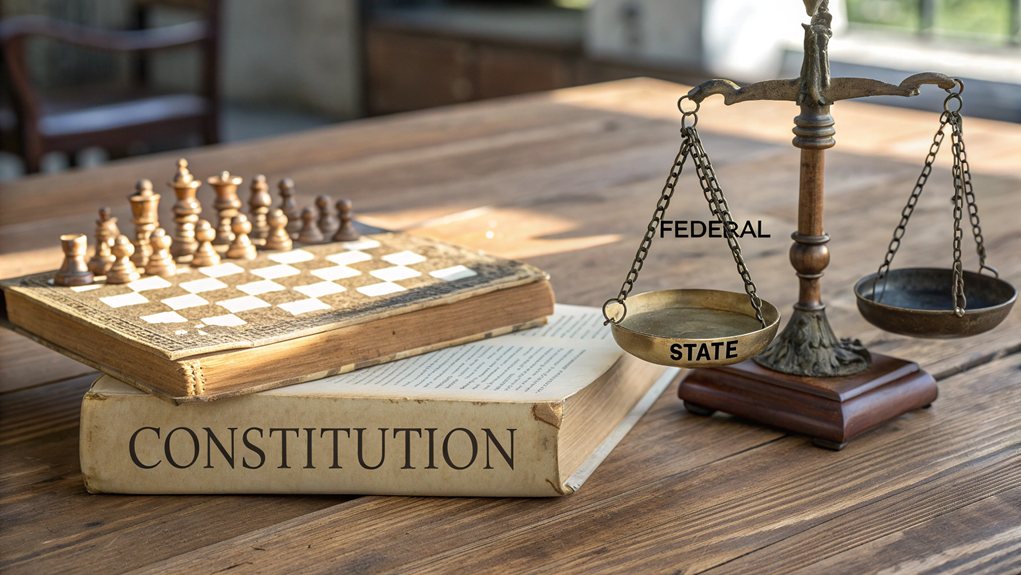
The United States Constitution is like the ultimate rulebook for how the country runs, and it outlines some pretty hefty powers. At the federal level, the Constitution spells out what the government can and cannot do. They can tax you, regulate commerce between states and with other countries, and, oh yes, declare war. It's almost like they're the ultimate authority on money and military matters. Want a national bank? Sure, they can set that up too. And don't forget about immigration and bankruptcy laws—because who wouldn't want the feds involved in that?
The Constitution is the ultimate playbook, defining federal powers like taxation, commerce, and war—talk about a heavyweight!
But wait! It's not all about the feds. States have their own set of powers, too. They can handle everything from education to healthcare. Intrastate commerce? That's their turf. Local law enforcement? Yep, that's on them. States have the general police power to regulate anything not explicitly given to the federal government. It's kind of like a high-stakes game of tug-of-war, where both sides have their strengths and weaknesses. The Tenth Amendment also emphasizes that powers not delegated to the federal government are reserved for the states.
Now, here's where it gets spicy: the Tenth Amendment. It's the superhero of state rights, reserving powers not given to the federal government. Meanwhile, the Supremacy Clause makes sure federal laws are the boss when things get messy. So, if states try to pull a fast one, the feds can swoop in and remind them who's in charge. Additionally, Congress has the power to raise and support Armies, which highlights the federal government's role in national defense. The concept of concurrent powers illustrates how both the federal and state governments can share responsibilities like taxing and building infrastructure.
And let's not forget about the limitations on both sides. The Ninth Amendment hints that the Bill of Rights isn't the end of the story when it comes to individual rights. The Supreme Court keeps the feds in check, especially with rulings that limit their power.
It's a constant balancing act. Power struggles, a Constitution, and the occasional court battle? Just another day in America.
Frequently Asked Questions
How Does the Constitution Address Conflicts Between State and Federal Laws?
The Constitution tackles state and federal law conflicts like a referee in a boxing match.
The Supremacy Clause? It's the heavyweight champ—federal laws win when they clash with state laws.
The Supreme Court? Think of it as the final judge, deciding who's right.
States can push back, though. They can challenge federal laws, but good luck with that.
It's a tug-of-war, and the Constitution has its favorites. Spoiler: it often favors federal power.
Can States Create Their Own Currency Under the Constitution?
No, states can't create their own currency. The Constitution puts Congress in the driver's seat for all things money-related.
States can't coin money or issue bills of credit. Imagine chaos if every state had its own cash! That's a recipe for confusion, right?
The Supreme Court backs this up, emphasizing that only Congress has the power to regulate currency.
What Powers Are Reserved Exclusively for the Federal Government?
The federal government holds some pretty exclusive cards. It can coin money—sorry states, no DIY currency.
It runs the show on interstate commerce, declares war, and sets the rules for naturalization. Treaties? All federal.
The President gets to conduct foreign policy and command the military. Plus, federal courts interpret laws and punish federal crimes.
How Can States Challenge Federal Authority Legally?
States have a few tricks up their sleeves when it comes to challenging federal authority. They can sue—yes, they actually do that—especially on hot-button issues like the environment and health.
But wait! They need to show they've got standing, which can be a real pain. Sometimes, they argue that the feds aren't doing their job, and that's where things get interesting.
It's like a high-stakes game of legal chess, and the board is always shifting.
What Role Do States Play in Amending the Constitution?
States are like the gatekeepers of constitutional amendments. They don't just sit back and watch; they get to decide if an amendment gets the green light.
A whopping three-fourths of states must say yes. It's a big deal. Sure, Congress can propose changes, but without state approval, it's all just talk.
This keeps everything in check and guarantees that even the smallest voices get heard in the grand constitutional orchestra.
